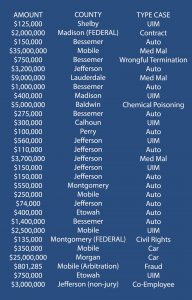 by HWC Partner Michael Eldridge
by HWC Partner Michael Eldridge
Every fall, parents across Alabama celebrate the significant milestone of sending their children off to college. While our attention naturally gravitates toward matters like lodging, tuition, and class schedules, we may also ponder whether our insurance policies continue to provide coverage for our children now that they are adults and out of the house. Consider this scenario: Your child is away at college and is involved in a car accident. Perhaps they are at fault and injure someone else, or worse, they themselves are injured by another driver. In such situations, what are the implications for the parents’ insurance coverage as is it relates to covering a child away at school?
For decades, Alabama courts have ruled on insurance disputes related to scenarios precisely like this one. The central point of contention between insurance companies and their insureds revolves around the term “residence.” Specifically, what qualifies as an individual’s place of residence while away at school? The crux of this question is significantly important because insurance contracts typically extend coverage to both the named insureds (i.e. the parents) and “relatives of the named insured if they are residents of the same household.”
 Alabama Injury Law Blog
Alabama Injury Law Blog




